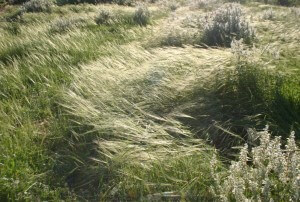Medicinal plants as a source of anti-inflammatory and anti-cancer drugs

In recent years, we have been brainwashed incessantly on the subject of health and nature. Everything that is natural is healthy and not to mention man-made products, whether it is medicine or food or any other product where the human hand interfered with the creation of nature. However, the feeling that everything that comes from nature is a guarantee of good health and a long life is blown out of proportion in my opinion.
Nature does provide us with everything, but not only healthy food, but also highly toxic substances such as those found in poisonous mushrooms, the leaves of the haunted plant, or plant substances from which addictive drugs are produced. Therefore we must be careful of general statements and overwhelming faith. It is important to learn to pay attention to the substance of the matter and not to cancel or glorify any concepts just based on the opinion of some expert, or "because it was published in the newspaper".
First, I would like to address the issue of medication. The shelves in health food stores and even pharmacies are full of different bottles containing "natural" remedies for every disease. These drugs are sold as food supplements, they received approval from the Ministry of Health as food supplements and the manufacturers were not required to go through a long and expensive proof mask of clinical trials to prove the safety and effectiveness of the drug.
However, since the dawn of mankind it has been known that many plants have healing properties, and healing with the help of medicinal plants is still the accepted method in many populations. And it must be remembered that some of the drugs that conventional medicine uses are based on ingredients that come from nature, such as plants or snake venom, but the development of the drug is done in a scientific way, after understanding the mechanism of action, comprehensive pharmacological research, and experiments to evaluate the effectiveness and safety of the drug. These experiments take a long time, are full of failures and require knowledge and adherence to the goal.
Therefore, we can welcome the fact that in recent years there has been a proliferation of scientific studies that try to scientifically test the properties and mechanism of action of medicinal plants, and to locate the active ingredient in the extract extracted from the plant. A good example of this is plants that may treat inflammation or cancer.
The inflammatory reaction is essentially a positive reaction (see "Cytokine storm", by Bracha Reger, Scientific American Israel, February-March issue, 2011), but once the inflammation becomes chronic it may serve as a factor in the development of many chronic diseases as well as in the process of cancerous transformation. Several proteins are involved in these processes, the most prominent of which is the conjugation of NF-κB proteins. It is a group of several proteins responsible for gene expression, that is, for the transcription of RNA from DNA. The activity of these proteins is important in controlling the normal functioning of the immune system, but as soon as the control is undermined, the inflammation becomes chronic and causes tissues in the body to undergo a cancerous transformation.
From recent pre-clinical studies on various medicinal plants such as curcumin, red chili, fresh garlic and more, it became clear that the active ingredients of these plants act as NF-κB inhibitors. The number of phytochemicals (plant substances) inhibiting NF-κB activity is large and we may finally be close to developing drugs for inflammatory or cancerous diseases based on medicinal plants. However, in order to confirm the laboratory findings, extensive clinical trials must be performed.
One gets the impression that indeed the world of plants is not yet sufficiently exhausted, but we must investigate it thoroughly, understand it deeply and not buy "marigolds in a bag".
___________________________________________________________________________________________________________________________________________
on the notebook
Professor Bracha Reger, Emeritus Professor of Microbiology and Immunology at the Faculty of Health Sciences at Ben Gurion University, President of Ort Israel and Chairman of the Academic Council of Ort Israel. Served as the chief scientist of the Ministry of Health and was a member of the Council for Higher Education.
And more on the subject
Plant derived inhibitors of NF-κB, Avi Golan Goldhirsh and J. Gopas, in Phytochmystry reviews, 2013 (in press)
ability northward של vegetable medicine: Opposite inflammation For prevention Disease the cancer או For treatment in patients in her. Liron Berkowitz et al., Medicine, volume 151, pages 629-663, November 2012
Nd

One response
If so, maybe it's worth researching the effect (positive/negative) of fenugreek, and Yemeni sagog and others, including hot pepper - is the hotter the better? Such as the habanero pepper and so on?